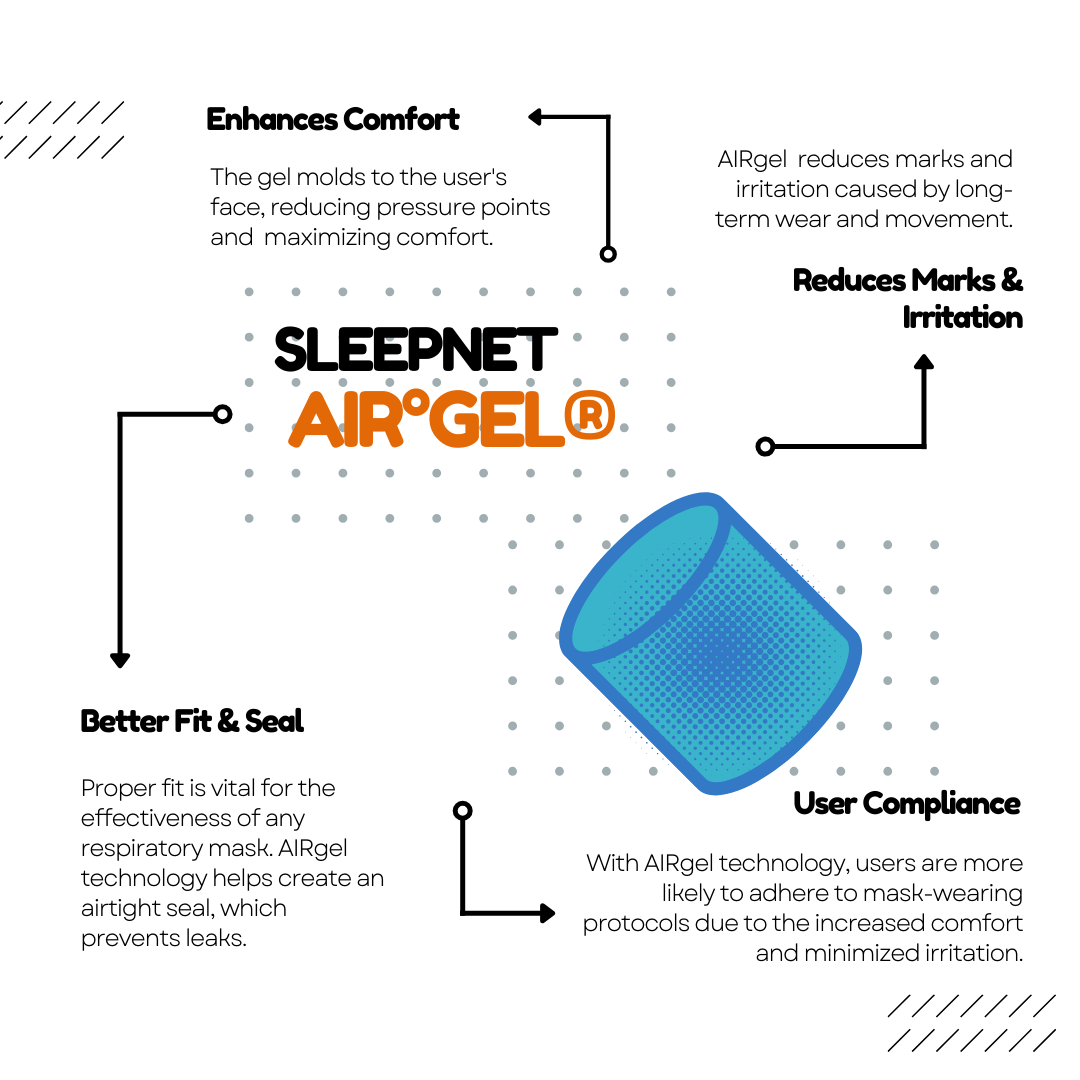What are NIV masks?
Non-invasive ventilation (NIV) masks are a type of respiratory support used to treat patients with breathing difficulties. They provide mechanical ventilation without the need for intubation, which is the insertion of a breathing tube into the patient’s airway. NIV masks help to treat a wide range of respiratory conditions, including chronic obstructive pulmonary disease (COPD), acute respiratory distress syndrome (ARDS), pneumonia, and more.[1] As hospitals and medical professionals move away from intubation due its risks, the demand for NIV masks continues to grow.
How do NIV masks work?
NIV masks deliver pressurized air or oxygen through a mask placed over the patient’s nose and/or mouth. The pressurized air helps to keep the patient’s airway open, allowing them to breathe more easily. The mask stays in place with straps that wrap around the patient’s head, and healthcare staff adjust pressure levels to meet the specific requirements of each patient.
What types of NIV masks are available?
There are several types of NIV masks, which include nasal masks, full-face masks, total face masks, pediatric masks, cannulas, and nasal pillows. The type of mask medical professionals select depends on the patient’s condition and individual preferences. Nasal masks cover only the patient’s nose, while full-face masks cover both the nose and mouth. Nasal pillows are small, cushioned inserts that fit into the patient’s nostrils.
What are the benefits of NIV Masks?
One of the benefits of NIV masks is that they are non-invasive, meaning that they do not require the insertion of a breathing tube. Using an NIV mask reduces the risk of complications associated with invasive treatment, such as infections or lung damage which occasionally arise with intubation. NIV masks are also generally more comfortable for patients than invasive treatments, and they potentially reduce the time a patient spends in acute care.
NIV masks are utilized in diverse settings such as hospitals, long-term care facilities, and homes. Within hospital environments, they are commonly used in the intensive care unit (ICU) to offer respiratory support to patients who are critically ill. In long-term care facilities, NIV masks help manage chronic respiratory conditions. In the home, NIV masks function as respiratory support for patients with COPD and other chronic diseases.
While NIV masks are generally safe and effective, it’s important to note that there are potential risks associated with their usage. These include skin breakdown, pressure ulcers, discomfort, and mask leaks. This is why it is important for patients using NIV masks to be closely monitored by healthcare professionals.
NIV masks are a vital tool in treating respiratory conditions. They offer a non-invasive way to provide mechanical ventilation to patients without requiring intubation. NIV masks are generally safe and effective, but patients should be closely monitored for potential complications. If you or a loved one has a respiratory condition, talk to your healthcare provider about whether NIV masks might be a suitable treatment option.
Does Sleepnet offer NIV masks?
Sleepnet specializes in manufacturing respiratory masks, including NIV masks designed to provide comfortable and effective respiratory support for adult and pediatric patients. Sleepnet offers multiple NIV mask options, each with unique features that meet the needs of various types of patients. For more information on Sleepnet NIV masks, go to https://www.sleepnetmasks.com/respiratory-masks/.
[1] Laurent Brochard, Dan Adler, Ricardo Luiz Cordioli, Evangelia Akoumianaki, 102 – Noninvasive Ventilation,
Editor(s): V. Courtney Broaddus, Robert J. Mason, Joel D. Ernst, Talmadge E. King, Stephen C. Lazarus, John F. Murray, Jay A. Nadel, Arthur S. Slutsky, Michael B. Gotway, Murray and Nadel’s Textbook of Respiratory Medicine (Sixth Edition), W.B. Saunders, 2016, Pages 1778-1793.e6, ISBN 9781455733835, https://doi.org/10.1016/B978-1-4557-3383-5.00102-0. (https://www.sciencedirect.com/science/article/pii/B9781455733835001020)


